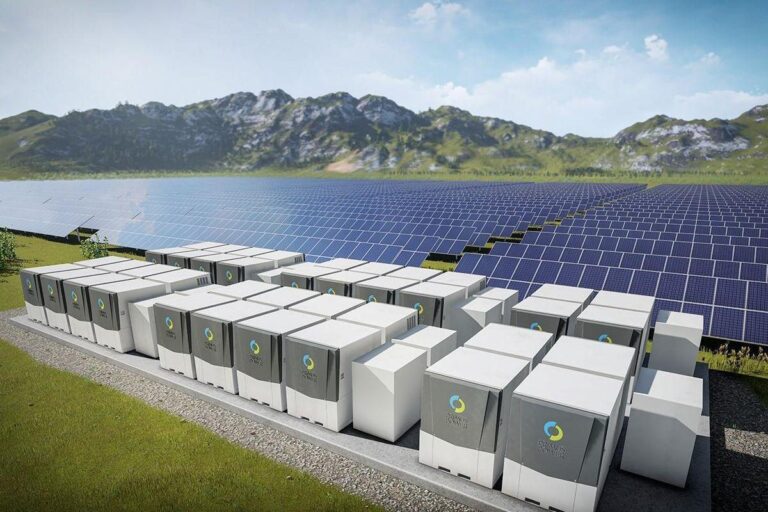Energy storage technologies have the potential to significantly reduce Brazil’s electricity system costs by 16% as early as 2029, according to a recent analysis published on ess-news.com. As the country accelerates its transition to renewable energy, integrating advanced storage solutions could play a crucial role in enhancing grid stability and lowering overall expenses. This development marks a pivotal step in Brazil’s energy landscape, highlighting how investment in storage infrastructure may offer both economic and environmental benefits in the coming decade.
Energy Storage Technologies Set to Transform Brazil’s Electricity Landscape by 2029
By 2029, Brazil’s power grid is expected to witness a major infusion of advanced energy storage technologies, significantly trimming down operational costs while enhancing grid reliability. Innovations such as lithium-ion batteries, flow batteries, and even emerging hydrogen storage systems are set to bolster the integration of renewable energy, particularly solar and wind, which are pivotal to Brazil’s clean energy ambitions. Experts forecast that these technologies will smooth out supply fluctuations, reduce dependence on costly peak power plants, and enable more efficient energy dispatch throughout the day.
Key energy storage solutions driving this transformation include:
- Lithium-ion batteries: Leading the market with fast response times and scalability.
- Flow batteries: Offering longer-duration storage ideal for grid balancing.
- Pumped hydro storage: Still relevant for large-scale applications, leveraging Brazil’s geographical assets.
- Hydrogen storage: An emerging player promising seasonal energy storage capabilities.
| Technology | Projected Capacity (GW) | Cost Reduction Impact (%) |
|---|---|---|
| Lithium-ion | 7.5 | 8.5 |
| Flow Batteries | 2.0 | 3.0 |
| Pumped Hydro | 4.0 | 3.5 |
| Hydrogen Storage | 1.2 | 1.0 |
Cost Savings and Grid Stability Benefits Highlighted in Recent Study
Implementing advanced energy storage solutions in Brazil’s power grid is projected to reduce overall electricity system costs by up to 16% by 2029. The recent study highlights that by integrating large-scale batteries and other storage technologies, the grid can better manage demand peaks, optimize renewable energy use, and lower dependency on expensive fossil fuel-powered plants. These enhancements are expected to translate into significant savings for utilities and consumers alike.
Beyond cost reductions, the report emphasizes crucial improvements in grid stability, citing benefits such as:
- Enhanced frequency regulation to minimize outages and equipment damage
- Smoother integration of intermittent renewables like solar and wind
- Improved load balancing during peak and off-peak hours
| Benefit | Impact |
|---|---|
| Cost Reduction | 16% Savings by 2029 |
| Outage Frequency | Decreased by 25% |
| Renewable Utilization | Increased by 30% |
Policy Recommendations Emphasize Accelerated Investment and Regulatory Support
To realize the full potential of energy storage in Brazil’s power grid, experts urge a significant acceleration in investment, paired with a robust regulatory environment that fosters innovation and market entry. Prioritizing funding-both public and private-will be essential to expand battery storage infrastructure at scale, which in turn can drive down overall system costs by optimizing energy dispatch and reducing reliance on peak generation. Government incentives, such as tax breaks and low-interest loans, would also help de-risk initial capital expenditures for developers and utilities.
Beyond financing, regulatory frameworks must evolve to streamline the integration of storage technologies. This includes reforming tariff structures to reward flexibility services, enabling energy storage participation in ancillary service markets, and setting clear interconnection standards. Key policy actions include:
- Introducing time-of-use pricing to incentivize load shifting and storage utilization
- Establishing clear definitions and market roles for energy storage assets
- Mandating grid codes that facilitate storage adoption without technical barriers
- Encouraging pilot projects to demonstrate storage benefits in varied regional contexts
| Policy Element | Expected Impact | Timeframe |
|---|---|---|
| Financial Incentives | Increase private sector investment by 40% | 2024-2026 |
| Regulatory Reforms | Greater market participation and innovation | 2024-2028 |
| Grid Code Updates | Improved interconnection speed by 25% | 2025-2027 |
In Conclusion
As Brazil continues to expand its renewable energy capacity, the integration of advanced energy storage systems presents a promising pathway to enhance grid efficiency and reduce overall electricity costs. According to recent projections, widespread adoption of energy storage technologies could slash the country’s electricity system costs by up to 16% by 2029. This development not only supports Brazil’s commitment to a cleaner energy future but also highlights the critical role of innovation in securing affordable and reliable power for its growing population. Stakeholders across the energy sector will be watching closely as these technologies move from pilot projects to mainstream implementation in the coming years.




